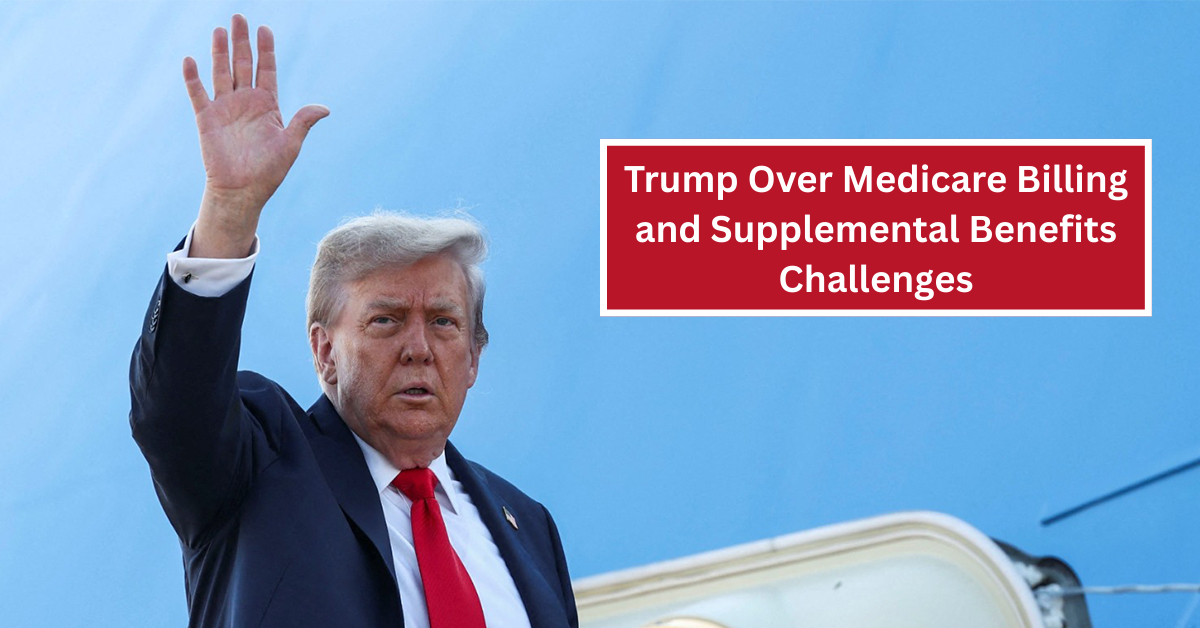The healthcare industry is witnessing a critical moment as UnitedHealth Group, one of the largest health insurers in the United States, seeks a high-level meeting with former President Donald Trump. The core issues revolve around Medicare billing practices and the complexities surrounding supplemental benefits, areas that significantly impact millions of Americans relying on Medicare Advantage plans.
This development underscores growing tensions between insurers and policymakers over how Medicare services are administered and reimbursed. The proposed discussions aim to address ongoing concerns about billing transparency, benefit adjustments, and the broader implications for patient access and affordability in Medicare plans.
Understanding the Scope of UnitedHealth’s Medicare Concerns
UnitedHealth’s request for dialogue comes amid escalating scrutiny of Medicare Advantage billing methodologies. Medicare Advantage plans, offered by private insurers like UnitedHealth, provide an alternative way for beneficiaries to receive their Medicare benefits, often including extra services or supplemental benefits not covered under traditional Medicare.
Central to the insurer’s concerns are disputes over how supplemental benefits are classified and reimbursed, especially for services that go beyond standard medical coverage. Billing protocols for these benefits have become increasingly complex as the government introduces new rules to prevent overpayments and fraud, sometimes leading to conflicts over what constitutes allowable charges.
What Are Medicare Supplemental Benefits?
Medicare supplemental benefits are additional health-related services included in Medicare Advantage plans to improve the overall well-being of beneficiaries. These services might include vision care, dental, hearing aids, wellness programs, transportation, and home health support, among others.
By providing these extras, Medicare Advantage plans aim to attract more enrollees and offer comprehensive care that addresses multiple aspects of health beyond traditional service coverage. However, defining the eligibility, scope, and reimbursement rates for these supplemental benefits remains challenging for both insurers and regulators.
The Complexities of Medicare Billing Protocols
Billing in Medicare Advantage plans involves intricate procedures designed to comply with federal regulations while ensuring providers and insurers are appropriately reimbursed. Discrepancies in how supplemental benefits are coded and billed can lead to claim denials or demands for repayment, creating financial uncertainty.
Insurance companies like UnitedHealth argue that some billing practices currently enforced may hinder their ability to deliver innovative benefits to participants, ultimately restricting access and increasing out-of-pocket costs. They contend that revisiting these billing policies is vital to maintaining high-quality, affordable care.
Statistical Insights Into Medicare Advantage Enrollment
| Year | Total Medicare Beneficiaries (in Millions) | Medicare Advantage Enrollees (in Millions) | Percentage Enrolled in Medicare Advantage |
|---|---|---|---|
| 2015 | 56 | 17 | 30% |
| 2020 | 63 | 24 | 38% |
| 2023 | 67 | 29 | 43% |
The rising number of Medicare Advantage enrollees highlights why issues relating to billing and supplemental benefits command significant attention. With nearly half of all Medicare beneficiaries choosing these plans, any changes in policy or billing can affect a considerable segment of the population.
Implications of UnitedHealth’s Meeting with Trump
Former President Trump retains substantial influence over Republican policy circles and healthcare legislation. UnitedHealth’s initiative to engage him signals a strategic move to garner political support for easing Medicare billing regulations or reshaping supplemental benefit frameworks.
This potential collaboration could influence future regulatory proposals and legislative debates, possibly shifting the landscape to be more favorable for insurers. Conversely, it may prompt discussions focusing on protecting beneficiary interests amidst concerns over costs and benefit adequacy.
The Broader Context of Medicare Policy Debates
Medicare policy remains a hotly contested arena where cost control, access to care, and innovation intersect. Stakeholders including insurers, healthcare providers, advocacy groups, and lawmakers continuously navigate these issues with varying priorities.
Recent years have seen increased efforts to modernize Medicare, incorporating value-based care models and expanding supplemental benefits to meet diverse patient needs. However, the challenges around billing accuracy and fraud prevention complicate progress, with differing opinions on how strict regulations should be.
Young Adult Perspective on Medicare Development
Younger Americans, although not immediate Medicare users, are observing these Medicare debates with interest, aware of their future implications. Affordability of healthcare, innovation in service delivery, and governmental oversight all impact how younger generations plan for long-term health security.
The growing enrollment in Medicare Advantage plans suggests a shift toward integrated care solutions that might appeal to future retirees who expect more comprehensive healthcare benefits beyond hospital and physician services.
Challenges Facing Medicare Advantage Providers
Providers of Medicare Advantage face multifaceted challenges including managing cost pressures, navigating regulatory complexity, and innovating benefits to meet evolving consumer expectations. Balancing these demands requires careful attention to billing standards to prevent financial losses and maintain compliance.
UnitedHealth, as a leading provider, exemplifies these strains as it seeks to work with policymakers to update frameworks that support sustainable growth and service excellence.
Possible Outcomes of Regulatory Negotiations
Outcomes of discussions with political figures like Trump may result in regulatory adjustments that streamline Medicare billing processes or expand definitions around supplemental benefits. Potential reforms could also tighten fraud controls while preserving flexibility for insurers to offer diverse health programs.
These negotiations hold the promise of improved clarity and efficiency but must balance the needs of beneficiaries to ensure that expanded benefits do not lead to increased costs or reduced care quality.
Conclusion: The Importance of Collaboration in Medicare’s Future
As UnitedHealth pursues high-level talks about Medicare billing and supplemental benefits, the broader healthcare community recognizes the need for collaborative solutions. Open dialogue between insurers, regulators, policymakers, and patient advocates will be essential in crafting policies that enhance Medicare’s value and affordability.
Younger and older Americans alike stand to benefit from advancements that reconcile innovation with regulatory integrity, ensuring Medicare evolves effectively to meet the nation’s healthcare challenges now and into the future.



